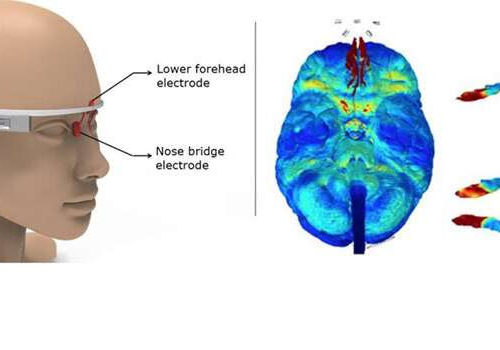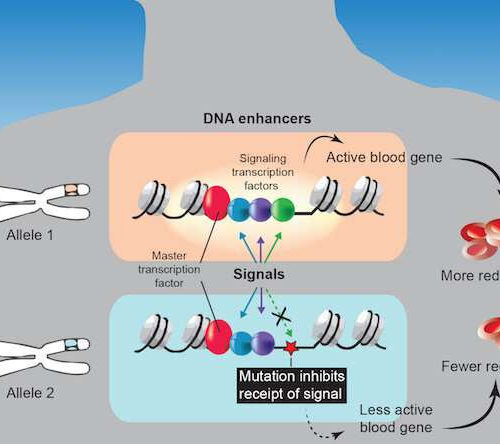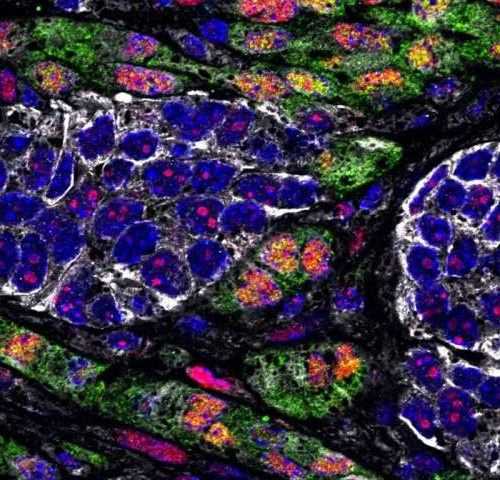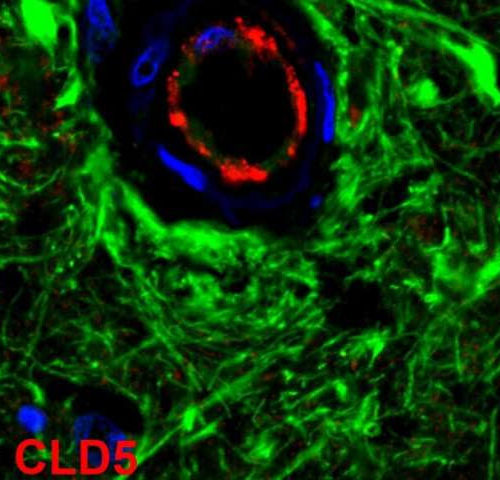by University of Toronto Credit: CC0 Public Domain Attention Deficit Hyperactive Disorder (ADHD) can have negative consequences on mental health into adulthood. A nationally representative Canadian study reported that the lifetime prevalence of suicide attempts was much higher for women who had ADHD (24%) compared to women who had not (3%). Men with ADHD were also more likely to have attempted suicide compared to men without ADHD (9% vs. 2%). “ADHD casts...
Too much of a good thing—persistent IFNγ depletes progenitor blood cells via BST2
by Baylor College of Medicine Credit: CC0 Public Domain When a person has an infection, the body activates immune responses to fight it. IFNγ is an inflammatory molecule produced by the immune system that helps fight infections. However, long-term exposure to IFNγ has undesirable consequences—it irreversibly exhausts blood stem cells, the progenitors of all blood cells, including immune cells, by triggering their proliferation and excessive terminal...
Perspective: Why opioids cannot fix chronic pain
by Bobbi Nodell, University of Washington Credit: CC0 Public Domain A broken heart is often harder to heal than a broken leg. Now researchers say that a broken heart can contribute to lasting chronic pain. In a reflections column published Dec. 21 in the Annals of Family Medicine, pain experts Mark Sullivan and Jane Ballantyne at the University of Washington School...
New blood-test device monitors blood chemistry continually
by Andrew Myers, Stanford University The RT-ELISA prototype consists of three modules: in the first (bottom), blood from the subject is mixed with a solution containing beads of target protein-detecting probes and fluorescent detection antibodies. The second module (top-right) eliminates excess blood cells. And the third module (top-left), transfers the fluorescently labeled beads to a detection...
Wearable electrical stimulator to zap Alzheimer’s disease
by Lydia Anderson, University of Otago Image of the wearable stimulator. Credit: University of Otago Stimulating humans’ sense of smell to prevent conditions such as Alzheimer’s Disease is the focus of international research led by the University of Otago. The olfactory system, or sense of smell, is known to be dysfunctional in the early stages of Alzheimer’s and Parkinson’s...
Missed signals? A new way we vary from each other biologically
by Nancy Fliesler, Children’s Hospital Boston Missed signal: In allele 2, a mutation in a DNA enhancer for a blood-related gene (the red star) prevents a signaling transcription factor from binding to it. This prevents the signal from getting through, so the blood gene does not turn on optimally. Over time, failure to respond to the...
Disarming cancer: Getting the upper hand on treatment-resistant quasi-mesenchymal cells
by Greta Friar, Whitehead Institute for Biomedical Research Epithelial cancer cells (in white) and quasi-mesenchymal cancer cells (in green). Credit: Anushka Dongre/Whitehead Institute Cancer is at its most deadly when two things occur: the cancer cells metastasize, spreading to new sites in the body, and the cells become resistant to treatment. The epithelial-mesenchymal transition (EMT) is a...
Scientists discover mutations associated with early onset dementia
by Trinity College Dublin Glial fibrillary acidic protein (GFAP) and Claudin-5 staining of an affected cell. Credit: Trinity College Dublin. Scientists at Trinity College Dublin today announced a significant advance in our understanding of an early onset form of dementia that may also progress our understanding of conditions such as Alzheimer’s disease. Adult onset Leukoencephalopathy with...
Regulatory RNAs promote breast cancer metastasis
by Cold Spring Harbor Laboratory Certain regulatory RNAs are involved in cancer cell movement and metastases. On the right, cancer cells are on the move with long, stiff actin filaments (in green) acting like fingers to help it move. Paxillin (red) collects in patches on the cell’s edge, sticking it to a surface. On the left,...
Deadly coronavirus-triggered fungal infection reported in India
By Yaron Steinbuch Spores of the Mucormycosis fungus Universal Images Group via Getty Images India has experienced a disturbing outbreak of a coronavirus-triggered fungal infection, which has a mortality rate of almost 50 percent — and can lead to blindness and the removal of the nose and jaw, according to local reports. The Gujarat Health Department...









